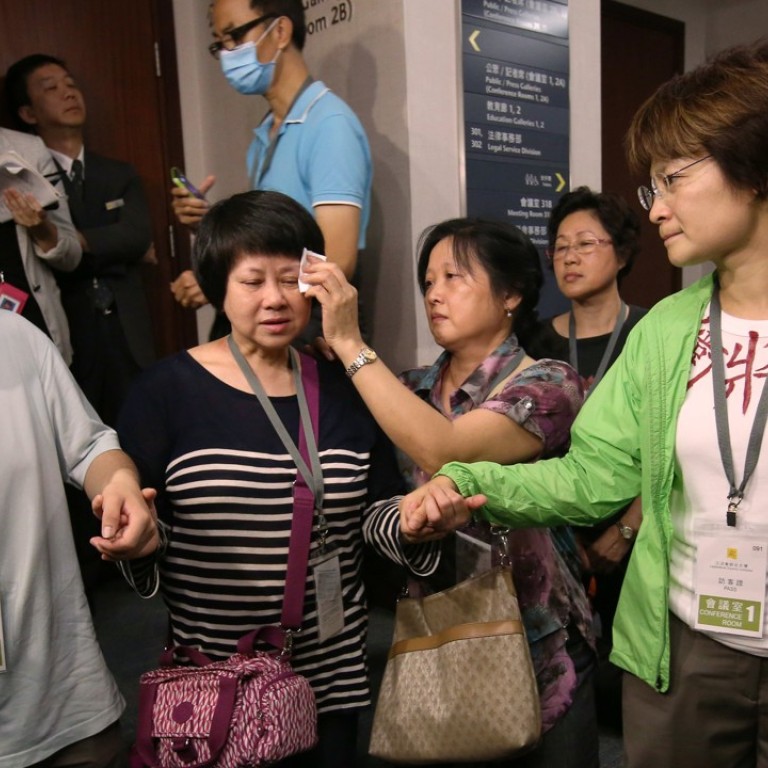
Ruling points way on freedom of speech
District councillor may have been fined for Legislative Council protests but judges were right to reject government bid to curb rights at all official buildings
The exercise of free speech and the extent to which it can be restricted has recently been the subject of much debate following the posting of pro-independence banners in universities. Many views have been expressed and clarity is needed. This week’s decision by the Court of Final Appeal, although in a different context, is therefore welcome. The case concerned protests by district councillor Christine Fong Kwok-shan during two Legislative Council subcommittee meetings in 2014. She and others held up a poster featuring a Nazi swastika in the public gallery while protesting against plans to extend a landfill in Tseung Kwan O. A security guard suffered a minor injury when trying to seize the poster. At another meeting she chanted slogans opposing the project. Fong was convicted and fined HK$2,000 for breaching Legco regulations regarding the conduct of those attending its meetings. She argued the rules were too broad and unlawfully curbed the freedom of speech protected by the city’s de facto constitution, the Basic Law.
The court unanimously upheld her convictions after carefully considering whether the rules met the established legal requirements for restrictions on freedom of speech. The approach adopted by the five judges serves as a timely reminder that such restrictions must be clear, necessary to achieve a legitimate purpose and go no further than needed. A government argument that free speech does not apply to those who enter official buildings such as Legco was, rightly, rejected by the court. The freedom to choose where to express oneself is an element of the right. Only in the most exceptional circumstances would free speech not be engaged. This is an important part of the judgment. If the government’s argument had been upheld it could have curbed the exercise of free speech in places where you would expect views to be aired and protests to be held.
But free speech can be restricted. The court found the Legco rules met the legal requirements. They are clear and the intention behind them is to ensure those attending Legco hearings behave in an orderly manner. The regulations strike the right balance between the public interest in ensuring Legco hearings can proceed smoothly and the right to free speech. A factor which led the court to uphold these restrictions was that there are other ways in which opposition to the landfill extension could be expressed, without disrupting Legco. The rules therefore amounted only to a narrow restriction on free speech. There are bound to be differing views about where the line should be drawn when deciding the limits to free speech. The court’s sophisticated approach in such cases, rooted in legal principle, is a good point of reference for future debates.

